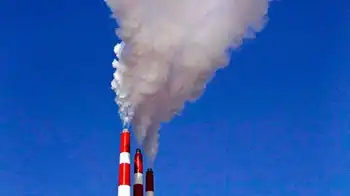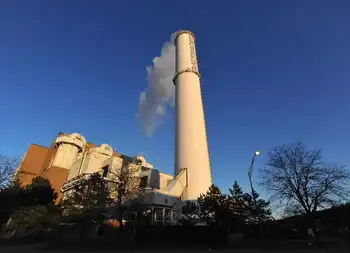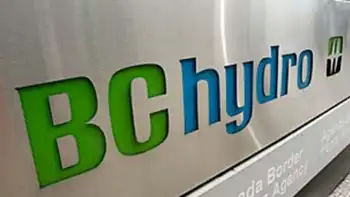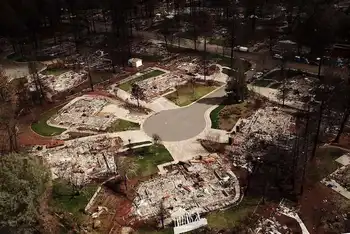$2.7 million awarded for Wolverine carbon project
ROGERS CITY, MICHIGAN - An electric power co-op that wants to build a coal-fired plant in northern Michigan has received a $2.7 million federal grant for a project designed to prevent industrial carbon dioxide from contributing to climate change, officials said.
The Wolverine Power Supply Cooperative Inc. project is among 12 funded by the Department of Energy to test technologies that capture carbon dioxide and store it underground instead of releasing it into the atmosphere, where it traps heat and warms the planet.
Wolverine Power's carbon capture system would be tested at a 600-megawatt plant it hopes to build near Rogers City. It would use chemicals and additives supplied by Dow Chemical Co. and Hitachi Ltd. to capture 300,000 tons a year of CO2.
Construction of the plant cannot begin without an air quality permit from the state Department of Environmental Quality, which is reviewing the co-op's proposal.
"We look forward to fully exploring the many opportunities for Michigan contemplated in our grant application" after the DEQ rules, said Craig Borr, Wolverine Power's executive vice president.
Rep. Bart Stupak, a Michigan Democrat whose district includes Rogers City, said the grant should encourage the department to approve the proposed facility.
"This gives a lot of credibility to what Wolverine has been saying — they want to be good stewards of our environment, use the latest technology," Stupak said.
But DEQ spokesman Robert McCann said the grant would not influence the department's decision. Michigan does not regulate carbon dioxide as a pollutant despite its contribution to global warming. The air permit aims to control emissions of other contaminants.
"We're supportive of carbon-capture projects like this," McCann said. "But the process for evaluating the permit is laid out specifically in the law and we have to follow it."
A ruling is expected by year's end, he said.
The Energy Department plans eventually to spend $1.4 billion in federal economic stimulus money for projects that demonstrate ways to capture CO2 for long-term storage or beneficial use.
The initial dozen grants total $21.6 million and will be combined with $22.5 million in private funding. Other recipients include cement and chemical plants, refineries, paper mills and factories.
The Wolverine Power project would test organic compounds known as amines, which separate carbon dioxide from other gases given off when coal is burned. Instead of escaping up the smokestack, the CO2 is pumped underground.
Carbon capture will not make the proposed Rogers City facility more acceptable to environmentalists who oppose more coal-fired plants in Michigan, said Lee Sprague, manager of the Sierra Club's Clean Energy Campaign.
"Even if this works, the cost is going to be staggering," Sprague said. "It was premature to award taxpayer money to a plant that hasn't even been approved."
The $2.7 million grant was for preliminary design work that can be done without the state air permit, Energy Department spokeswoman Tiffany Edwards said. But Wolverine Power would need the permit to get more federal funding and take the project further.
Also Tuesday, hundreds of blue-collar union workers rallied at the state Capitol in Lansing for approval of the Wolverine Power plant and another coal-fired generator proposed by Consumers Energy. Many wore T-shirts saying "Put us to work."
Some legislators spoke in favor of the projects, saying they were justified under an energy bill approved last year.
"We have got to get the bureaucrats to live up to this deal so you can get back to work and we can build baseload in this state," House Speaker Andy Dillon said.
Staffers with the Michigan Public Service Commission have questioned the need for both plants.
Related News

Electricity restored to 75 percent of customers in Puerto Rico
PUERTO RICO - Nearly six months after Hurricane Maria decimated Puerto Rico, the island's electricity has been restored to 75 percent capacity, according to its utility company.
The Puerto Rico Electric Power Authority said Sunday that 75.35 percent of customers now have electricity. It added that 90.8 percent of the electrical grid, already anemic even before the Sept. 20 storm barrelled through the island, is generating power again.
Thousands of power restoration personnel made up of the Puerto Rico Electric Power Authority (PREPA), the Federal Emergency Management Agency (FEMA), industry workers from the mainland, and the Army Corps of Engineers have made…




